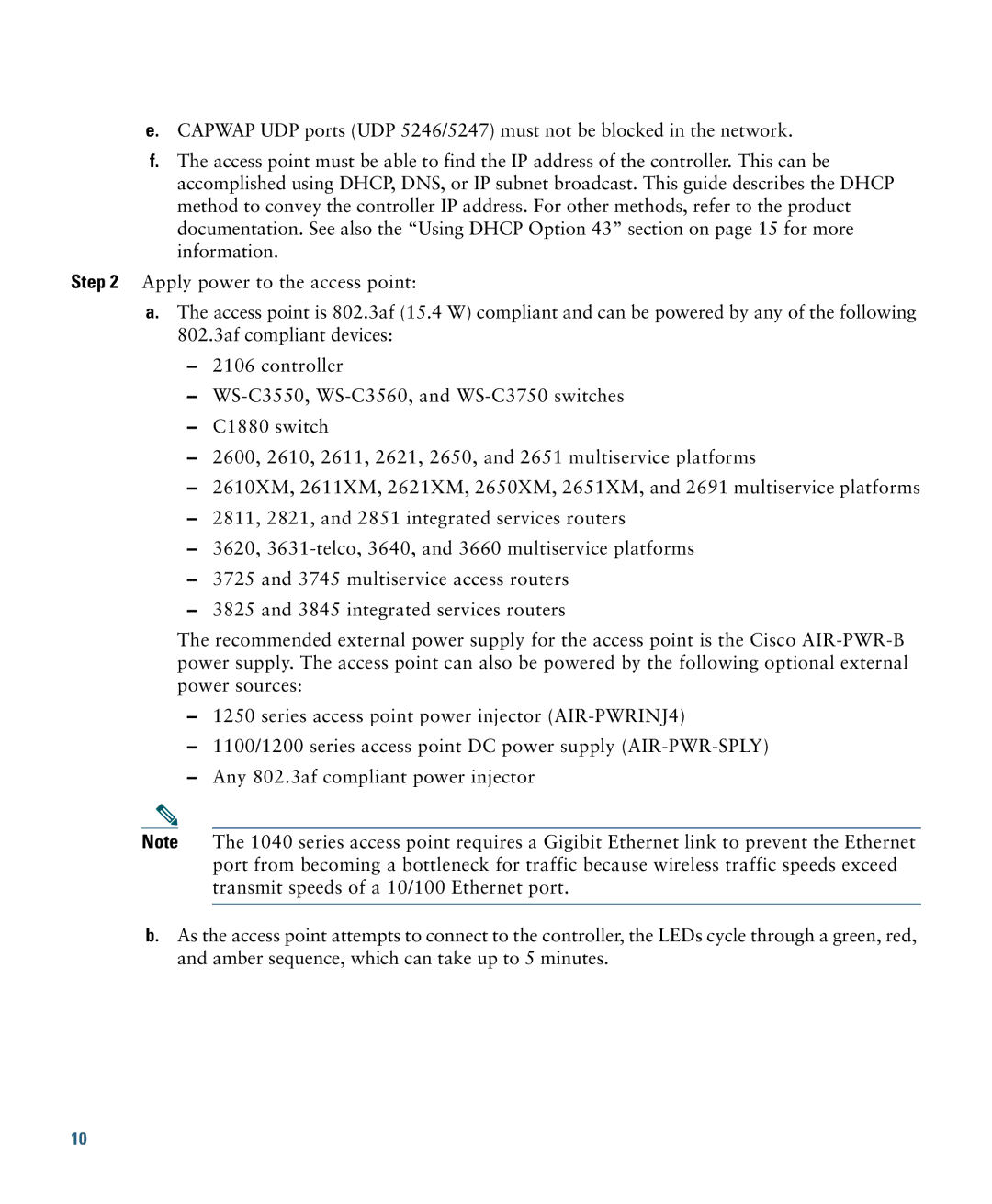
e.CAPWAP UDP ports (UDP 5246/5247) must not be blocked in the network.
f.The access point must be able to find the IP address of the controller. This can be accomplished using DHCP, DNS, or IP subnet broadcast. This guide describes the DHCP method to convey the controller IP address. For other methods, refer to the product documentation. See also the “Using DHCP Option 43” section on page 15 for more information.
Step 2 Apply power to the access point:
a.The access point is 802.3af (15.4 W) compliant and can be powered by any of the following 802.3af compliant devices:
–2106 controller
–
–C1880 switch
–2600, 2610, 2611, 2621, 2650, and 2651 multiservice platforms
–2610XM, 2611XM, 2621XM, 2650XM, 2651XM, and 2691 multiservice platforms
–2811, 2821, and 2851 integrated services routers
–3620,
–3725 and 3745 multiservice access routers
–3825 and 3845 integrated services routers
The recommended external power supply for the access point is the Cisco
–1250 series access point power injector
–1100/1200 series access point DC power supply
–Any 802.3af compliant power injector
Note The 1040 series access point requires a Gigibit Ethernet link to prevent the Ethernet port from becoming a bottleneck for traffic because wireless traffic speeds exceed transmit speeds of a 10/100 Ethernet port.
b.As the access point attempts to connect to the controller, the LEDs cycle through a green, red, and amber sequence, which can take up to 5 minutes.
10
